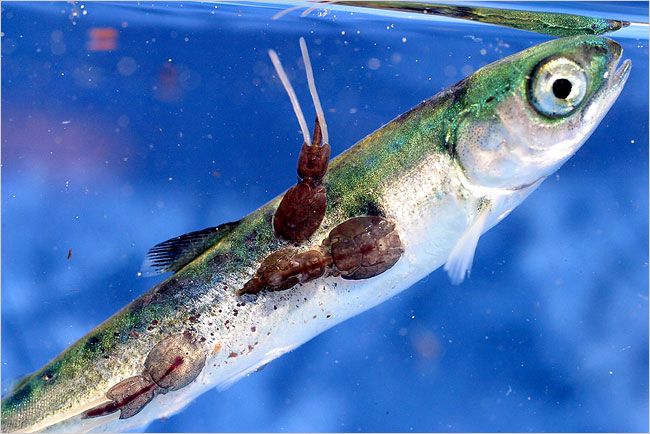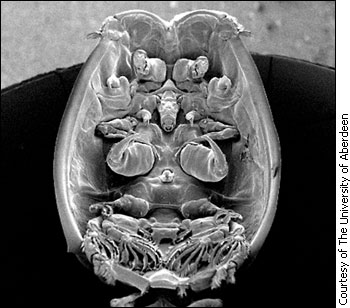 While working on a response to Ray Hilborn’s silly and misleading op-ed in the NYT urging American’s to eat more fish, I ran across a great article about the complex issue of choosing farmed versus wild-caught salmon (and other fish). The article “The Wild Salmon Debate” is superbly written and the author, David Dobbs, is well-informed about the science surrounding the issue. You can read his piece here.
While working on a response to Ray Hilborn’s silly and misleading op-ed in the NYT urging American’s to eat more fish, I ran across a great article about the complex issue of choosing farmed versus wild-caught salmon (and other fish). The article “The Wild Salmon Debate” is superbly written and the author, David Dobbs, is well-informed about the science surrounding the issue. You can read his piece here.
One of the major problems with farming salmon is outbreaks of salmon lice that can infect wild salmon passing by the farms. There is a growing literature on this problem. One study Ford and Myers (2008) A global assessment of salmon aquaculture impacts on wild salmonids (you can view the paper here in the open access journal PLoS Biology) concluded “we find a reduction in survival or abundance of wild populations of more than 50% per generation on average, associated with salmon farming”
Also see an excellent review article on wild salmon and sea lice here.
Condensed author summary from Ford and Myers: The impact of salmon farming on wild salmon and trout is a hotly debated issue in all countries where salmon farms and wild salmon coexist. Studies have clearly shown that escaped farm salmon breed with wild populations to the detriment of the wild stocks, and that diseases and parasites are passed from farm to wild salmon. In this study, we used existing data on salmon populations to compare survival of salmon and trout that swim past salmon farms early in their life cycle with the survival of nearby populations that are not exposed to salmon farms. We have detected a significant decline in survival of populations that are exposed to salmon farms, correlated with the increase in farmed salmon production in five regions. …we find a reduction in survival or abundance of wild populations of more than 50% per generation on average, associated with salmon farming. Many of the salmon populations we investigated are at dramatically reduced abundance, and reducing threats to them is necessary for their survival.

Leave a Reply